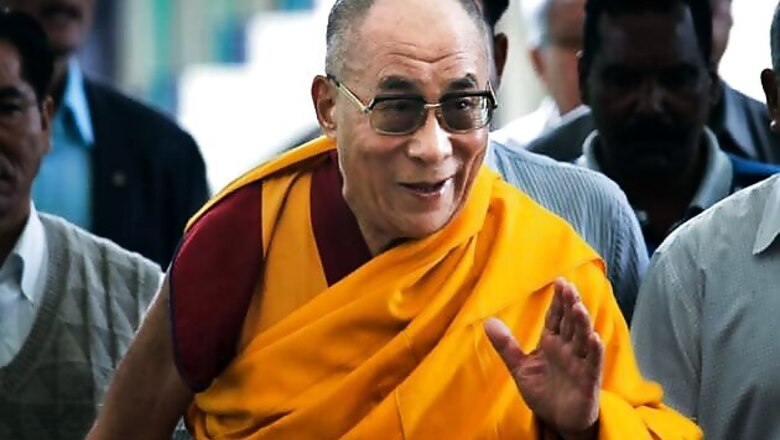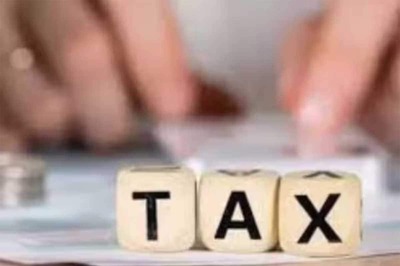
views
London: China is beset by a moral crisis, widespread corruption and lawlessness, leading millions of Chinese to seek solace in Buddhism, Tibet's exiled Buddhist leader, the Dalai Lama, said on Monday.
The Dalai Lama was in London to receive the $1.7 million Templeton prize for his work affirming the spiritual dimension of life.
Speaking to reporters before the award ceremony at St. Paul's Cathedral in London, he said millions of young Chinese were showing an interest in spirituality.
"Look at China now, the moral crisis, corruption - immense," he said, adding that China had "no proper rule of law".
A survey two years ago found that 200 million Chinese followed Buddhism, including many who followed Tibetan Buddhism, he said.
"Tibetan Buddhist culture I think (is of) immense benefit to millions of Chinese who are really passing through a difficult period like that," he said.
In the most tumultuous upheaval in China's leadership in decades, the Communist Party banished its most controversial politician, Bo Xilai, from its ranks in April and detained his wife over the murder of a British businessman.
China has ruled Tibet since 1950 when Communist troops occupied the country. The Dalai Lama escaped to live in exile in India after a failed uprising against Chinese rule.
The Dalai Lama, who won the Nobel peace prize in 1989, said he would donate $1.5 million of the Templeton prize money to support British charity Save the Children's work to combat malnutrition among children in India. The rest will go to scientific causes.
Cameron meeting
British Prime Minister David Cameron will meet the Dalai Lama later on Monday, Cameron's office said. However, the meeting will not take place at Cameron's official Downing St residence in a gesture to Chinese sensibilities.
China voiced "strong dissatisfaction" after Cameron's predecessor as prime minister, Gordon Brown, met the Dalai Lama, also away from Downing St, in 2008.
Tibetan protests against Chinese rule have intensified in recent months. At least 32 Tibetans have set themselves on fire, mostly in southwestern China, since March 2011 to protest against Chinese rule in Tibet, according to Tibetan rights groups. At least 22 have died.
The Dalai Lama has angered the Chinese government by refusing to condemn the protests and accusing Beijing of overseeing a "cultural genocide" against Tibetans.
The Dalai Lama refused to say on Monday whether the self-immolations should stop or continue.
"I think that is quite a sensitive political issue. I think my answer should be zero," he said, noting that he had devolved political power to an elected leader last year.
The Dalai Lama waded into a sensitive British political issue by saying that he might have joined anti-capitalist protesters who staged a four-month protest outside St Paul's Cathedral if their motives were sincere and justified.
Police and bailiffs cleared the protesters' camp in February.
The Dalai Lama told a British newspaper on Sunday he feared China might have plotted to kill him by training female agents with poison in their hair. But he said on Monday he did not know if the allegation was true as he had no way of checking.
Asked what spiritual advice he would give to British people suffering from economic turmoil in the country, which is going through austerity and recession, the Dalai Lama said: "Please don't feel helpless or hopeless... Work hard."


















Comments
0 comment